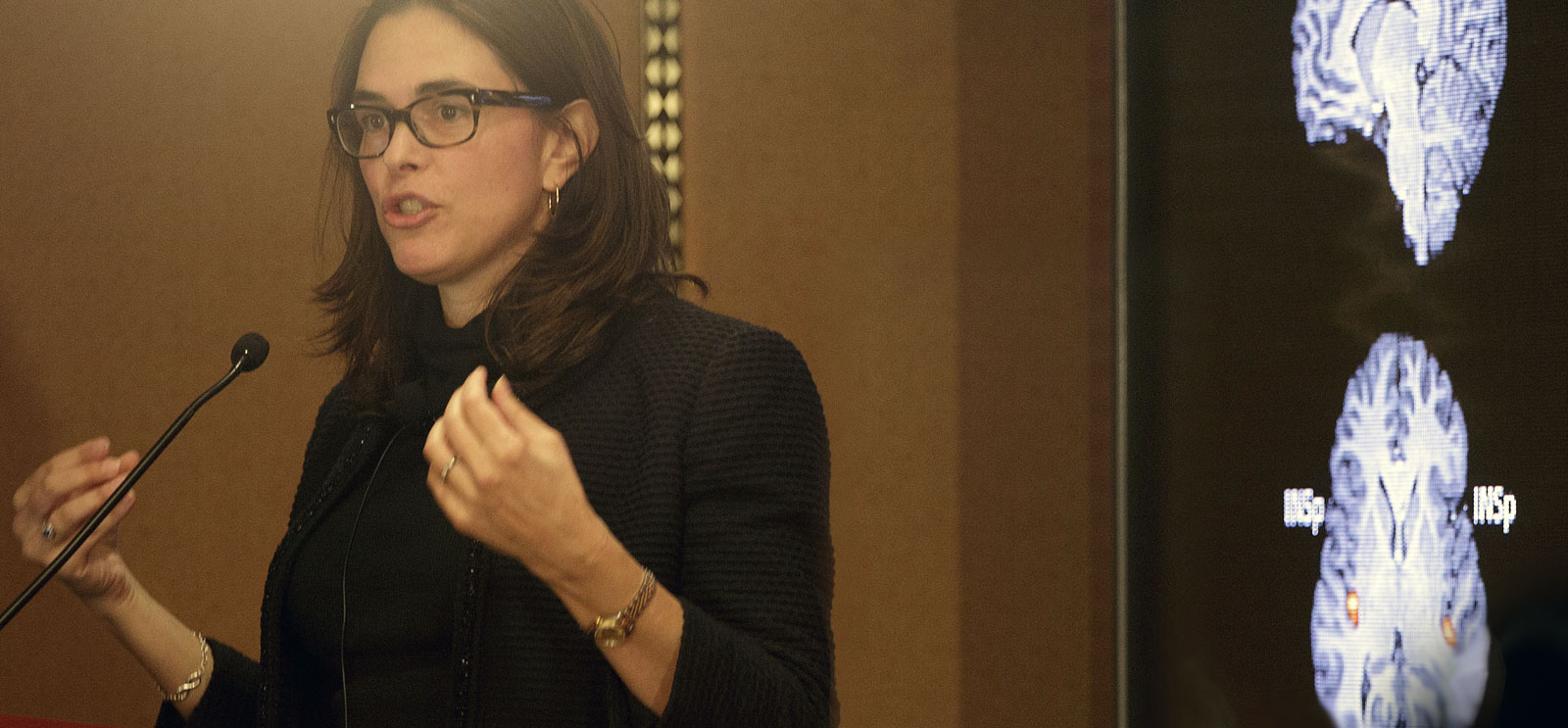In her new book, Sian Beilock proposes that our bodies “hack” our brains, and that the way we move affects our thoughts, decisions, and even preferences for particular products. (Photography by Kuni Takahashi)
Psychology professor Sian Beilock on her research, her books, and her new role in the Office of the Provost.
Why do you mess up when it matters the most? When you’re struggling with a problem, is it better to sit still or move around? Can increasing the green space in a city really reduce violence? Those are the kinds of questions that
Sian Beilock, professor of
psychology and principal investigator at the
Human Performance Lab, explores in her books
Choke (Atria Books, 2011) and
How the Body Knows Its Mind (Atria Books, 2015).
Appointed vice provost for academic initiatives in October, Beilock coordinates academic programs that straddle more than one division, school, or institute—such areas as urban science and practice, energy and the environment, and the arts.
—Edited and adapted by Carrie Golus, AB’91, AM’93
[[{"type":"media","view_mode":"media_original","fid":"2646","attributes":{"alt":"","class":"media-image","height":"272","typeof":"foaf:Image","width":"460"}}]]
In Beilock’s Human Performance Lab, her team measures performance using reaction time and neuroimaging techniques. (Photography by Jason Smith)
Your books are so accessible. Why did you decide to write for a mainstream audience?
I think it’s important to be able to communicate the fascinating and exciting science that is going on around human performance to a broad audience. We all strive to perform at our best, and folks want to know what psychologists and neuroscientists are learning about how to do this.
How has your research shaped your daily life?
I think you are asking if I do “me-search”—not just research. And, yes, I am interested in understanding the brain and body factors that lead to optimal performance in my own life as well as the lives of others. I have learned a lot about how humans learn and perform their best—especially under stress—and I try to practice what I preach.
As an example, in
How the Body Knows Its Mind, I talk about the power of getting up from our desks and walking around as a way to jog the mind and get around mental blocks. I certainly employ that technique in my own work. When I am stuck on a problem, I try to take a break from it for a minute or two rather than banging my head against the wall. It seems to work.
What are the biggest misconceptions people have about the relationship between the brain and the body?
That the mind controls the body. It’s a two-way street. Our body sends signals to our mind that shape how we think and feel. What we do with our body matters.
Why did you agree to serve as vice provost?
I am always up for a new challenge, and the opportunity to think about cross-disciplinary initiatives at the University was an exciting prospect for me. Right now I am working on topics such as urban scholarship and how to enhance graduate education. It’s a lot of work, but I love it.
What research are you doing now at the Human Performance Lab?
We are looking at the relation between teachers’ and parents’ attitudes about math (often negative) and children’s math achievement. Lots of folks, especially in the United States, have math anxiety, a fear or apprehension about math. We are asking where this anxiety comes from, how it affects our ability to think and reason on the fly, and what we can do to ensure that negative math attitudes don’t get transferred from one generation to another.
If you do feel anxious about math, what’s the best way not to pass that anxiety on to the next generation?
How we talk about something like math matters. If we praise effort—“Good job, you tried hard”—that sends a signal that hard work is the way to increase your skills. But if you praise ability—“Oh, you are so smart, naturally talented at math”—even though this language might seem positive, it sends a signal that math is a fixed ability. You are good at it or not. And when kids fail, this thinking that math is a gift one has or doesn’t can backfire. They interpret that failure as a sign that they don’t have “math talent,” and they don’t want to try at it in the future. Bottom line? Praise effort, not ability.


